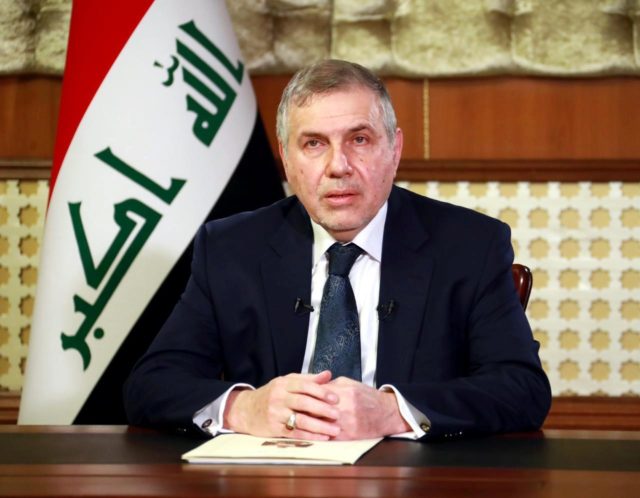
Briefs
Publication: Terrorism Monitor Volume: 18 Issue: 5
By:

Iraq’s Political Crisis Further Hinders Anti-IS Security Collaboration
Brian M. Perkins
Iraq’s political crisis continues to worsen as Abdul Mahdi’s intended successor, Mohammed Allawi, withdrew his candidacy (Al Jazeera, March 2). Allawi cited opposition from the public and other political leaders as the reason for his withdrawal. It is now as unclear as ever who will help to steer Iraq out of the crisis while Iran-aligned political leaders and the Popular Mobilization Units (PMU) they command jockey for supremacy within the political landscape. While focus is directed toward the political power vacuum, the resilience of Islamic State (IS) still lingers in the background. A prolonged political crisis will, of course, serve to benefit IS, but so too could the composition of whatever government formation comes next.
Among the key challenges with eradicating IS and preventing a future resurgence in Iraq has been the matter of coordination between Iraqi troops, including PMUs, and Kurdish Peshmerga forces and the subsequent security vacuums that exist between Iraq and Iraqi Kurdistan, particularly from Daquq and the Khanoka Mountains north to Nineveh’s border with Syria. The security vacuums in these areas are often dozens of miles deep and provide the ideal, rugged terrain from which IS has started to reconstitute itself and use as a base to launch attacks. IS has launched numerous operations against civilians, including kidnappings, as well as attacks against Iraqi and Kurdish forces along these lines. Kurdish officials have been calling for a long-term, comprehensive joint security plan to address these shortcomings with little success (Kurdistan24, February 29).
In particular, IS has managed to regroup in Nineveh beyond just the disputed areas due to the province’s vast size. However, it is the insecure line between Kurdistan and Iraq that could potentially provide the group an easier route to push further south into more urban areas if it continues to regroup.
Baghdad has not prioritized a deeper partnership with Kurdish officials to address these areas and a prolonged political crisis will undoubtedly delay any such plans. Even if the political void in Baghdad were filled quickly, the composition of the new government will have significant implications for cooperation between the two rival governments. The Kurdish government as well as its Peshmerga forces’ relationship with their Iraqi counterparts, particularly the PMUs, remains significantly strained. Kurdish officials have been vocal in warning against the rise of Iranian-backed militias. Countless bloody battles have been ongoing between Peshmerga forces and Iranian-backed PMUs, most notably when the Iraqi government sought to retake control of Kirkuk province in 2017 (Kurdistan24, October 20, 2017). Meanwhile, efforts to push U.S. forces out of Iraq are in direct opposition to Kurdish sentiment and the government’s commitment to eradicating IS and stabilizing the country and its relations with Baghdad. A major victory for Iranian-backed politicians and the PMU will further slow security partnerships and an improvement in relations between the Iraqi and Kurdish government, the latter of which will push to continue the United States’ presence.
***
Iran: Coronavirus Adds to Regime’s Woes
Brian M. Perkins
The rapid and global spread of coronavirus has significantly impacted the global economy and is particularly devastating to the oil exporting Gulf states, many of which rely heavily on exports to China. The domestic impact for Iran, however, extends well beyond the economy and is less related to oil exports than in nearby countries—due to sanctions—and more about the already boiling public resentment toward the regime. While the virus has mostly kept the outrage off the streets, the ongoing handling of the situation and its impact will almost certainly come to bare when the dust settles.
The rapid spread of coronavirus across most major population centers in Iran has led to at least 290 deaths—the third most deaths behind China and Italy—since the first reported case on February 19. The outbreak comes on the heels of popular protests in late 2019, the controversial downing of a Ukrainian passenger jet, and during parliamentary election polling on February 21 that was boycotted in numerous locales for purportedly being a sham (Middle East Eye, March 10). The Iranian regime has faced significant criticism, both externally and internally, for its failure to quarantine the city of Qom and enact broader restrictions, the virus’ spread among political leaders, and the lack of transparency surrounding the outbreak and reporting on the official number of cases. Some isolated clashes have already been reported over the handling of the outbreak in the city of Talesh in Gilan Province and further isolated, small-scale incidents could crop up elsewhere.
The parliamentary election, which saw the disqualification of countless reformist candidates, proceeded despite the outbreak and saw a turnout that was, understandably, even lower than what was already expected. Hardline conservative politicians won in a landslide victory and the rapid spread of the virus is almost certain to have muted public frustration. Adding further intrigue to the likely delayed public response is the matter of the number of Iranian officials who have been infected with coronavirus, including two newly appointed conservative lawmakers (Radio Farda, March 7; Al Arabiya, March 1).
The Iranian regime’s handling and duration of the coronavirus outbreak is almost certain to provide more fodder to a public that has grown increasingly frustrated with its narrative controlling cycles of lies, repression, corruption, and overseas misadventures at the detriment of the public. If the outbreak continues to spread at its ongoing pace and the death toll continues to rise, the Iranian regime will face new questions and outrage beyond the already tumultuous past six months. Further, it is unclear how the second order effects will play out in regard to the number of Iranian lawmakers effected and the implications a prolonged outbreak will have on runoff parliamentary elections that were slated to be held on April 17, but could be delayed (Tasnim News, March 10).




